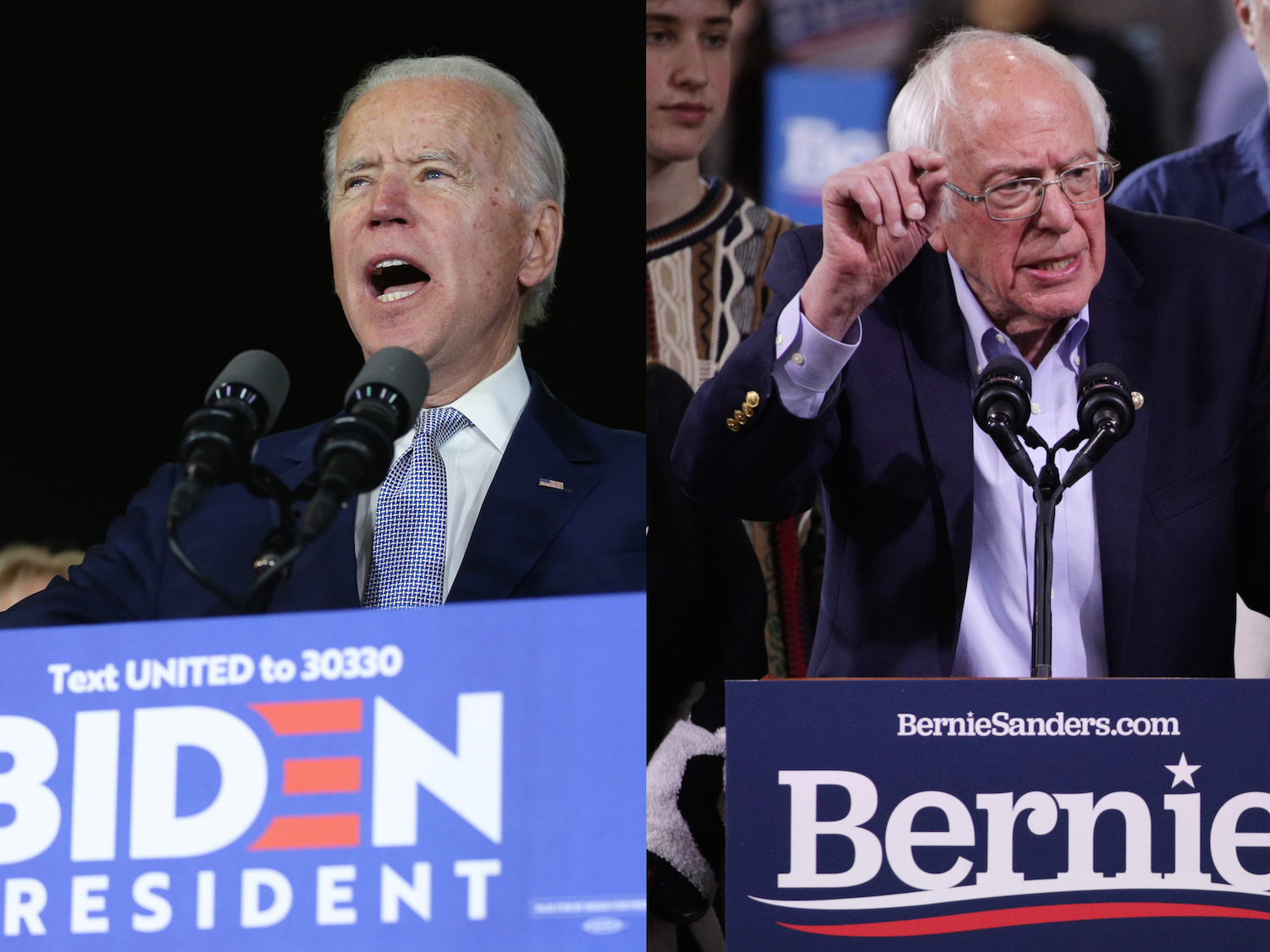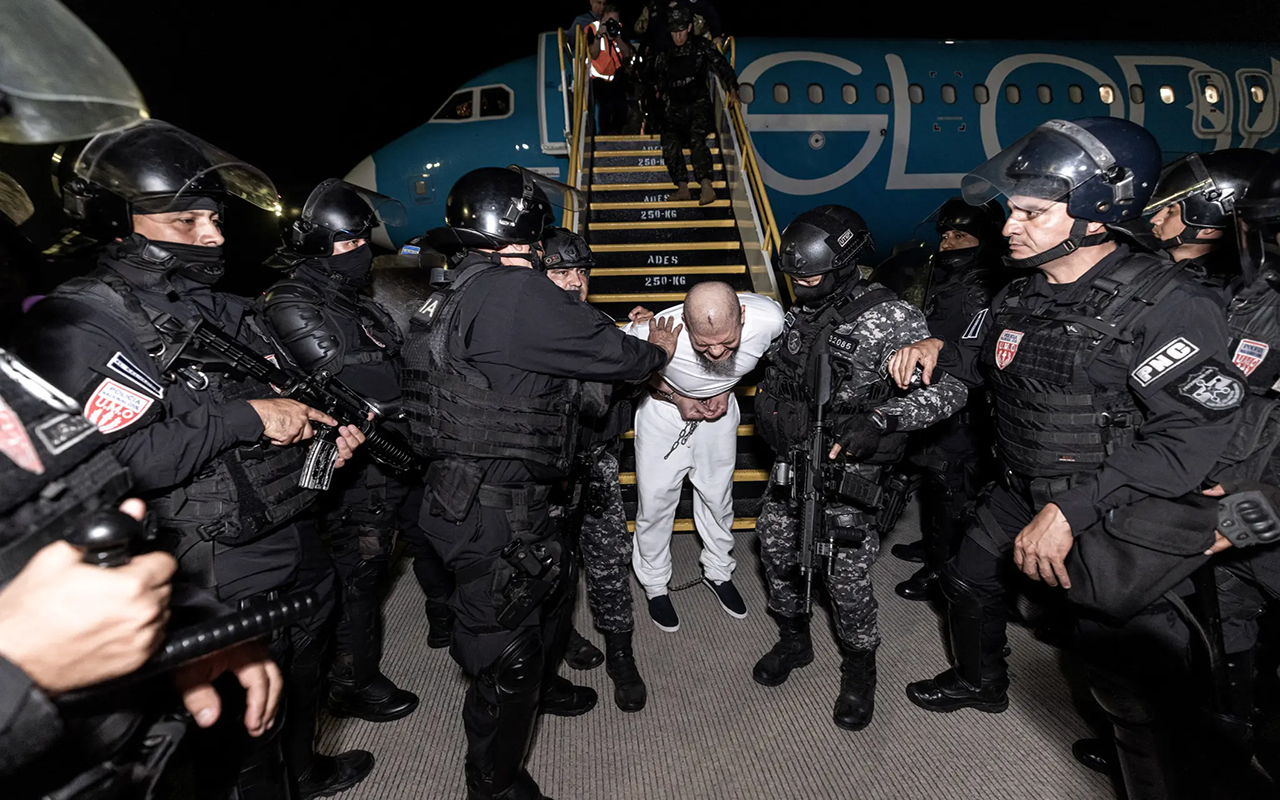
Super Tuesday sets the stage for a Biden-Bernie showdown for the rest of the Democratic primaries
It's now all but a two horse race for the Democratic nomination.
It looks like the moderate Democratic vote finally flexed its muscle at the most opportune time in favor of former Vice President Joe Biden.
With the endorsements of fellow moderates and former candidates Pete Buttigieg and Amy Klobuchar in the lead up to Tuesday, Biden rode a wave of new momentum following his triumph in South Carolina and came away with the most delegates on March 3.
As of now, half of the 14 states up for grabs still have yet to report their total vote tallies, but all have declared winners.
Biden is the declared winner in ten states, while Sanders holds four.
The former Vice President followed his destruction in South Carolina with big wins in other southern states like North Carolina, Virginia, Alabama, Arkansas, and Tennessee.
He also snagged closer wins in Minnesota, Massachusetts, Maine and Texas — where he and Sanders each had a third of the vote.
The Vermont Senator took home big victories in his home state and Utah, but closer wins in Colorado and California mean Sanders didn’t win as many delegates as polls had initially forecast.
In the aftermath of Super Tuesday, both Biden and Sanders have emerged as the two frontrunners vying for the Democratic nomination in July. What was once a crowded field with 11 candidates a little more than a month ago in Iowa is now down to four.
The first to drop out after a poor showing on Tuesday was former New York Mayor and billionaire, Michael Bloomberg.
His campaign bet big — like $500 million in advertising big — on Super Tuesday states to only walk away with 53 delegates. That’s almost $10 million a delegate, good enough for fourth place in the race.
That’s also where he finished in most of the 14 states, either third behind Biden and Sanders or fourth behind Biden, Sanders and Massachusetts Sen. Elizabeth Warren.
He did, however, win American Samoa.
After announcing the suspension of his presidential campaign, Bloomberg followed suit with Buttigieg and Klobuchar in throwing his support behind Biden.
RELATED CONTENT
What wasn’t claimed by Biden, Sanders or Bloomberg fell to the remaining two candidates, Warren and Hawaii representative Tulsi Gabbard. Warren’s haul was identical to Bloomberg at 53 delegates thanks to a slew of third and fourth place finishes.
Gabbard picked up the smallest of victories as she won her first delegate from American Samoa.
It’s not known how long either candidate will remain in the race. Gabbard’s persistence is admirable, but Warren is said to be reconsidering her run in the wake of Super Tuesday’s results.
Despite throwing most of their support behind the candidate that’s been most engaged with them throughout the country, Super Tuesday’s results and Biden’s ascension means Latinos risk not having their candidate on the ballot in November.
An overwhelming amount of Latinos in both Texas and California voted for Sanders, but it only delivered him victory in the latter. On the day, Biden’s strong support from African-Americans and moderates outweighed Sanders’ support among Latinos and progressives.
It is now effectively a two-horse race to the Democratic nomination, with Biden holding a 65-delegate lead in the race to 1,991.
However, Latinos could play a role in delivering states like Florida, Arizona and New York to Sanders in future primaries. Florida and Arizona both will be decided on March 17, while New York’s primary isn’t until April 28.
There’s still a long road ahead in the Democratic primaries, but with Super Tuesday 2020 gone, it looks as though it will again be a battle between Sanders and his progressive coalition and the moderate Democratic party.










LEAVE A COMMENT: